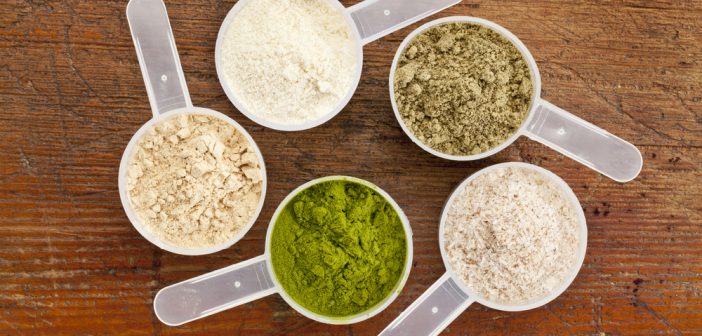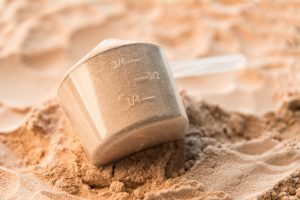Amazonia founder and managing director Dwayne Martens takes a look at all things supplements, with a particular focus on real vs synthetic ingredients.
Australians are one of the world’s largest consumers of dietary supplements, with vitamin and mineral sales alone reaching over $646 million in 2013. From vitamin C to amino acids, the market for supplements is continuously growing.
The amount of highly processed, nutrient lacking pre-packaged foods on the market is also increasing. The typical Australian diet can be filled with too many empty calories and not enough nutrient dense, whole foods containing essential nutrients our bodies need.
We rely on supplements to boost our diet more than ever. Supplements have a wide variety of purposes including all-round immune function, bone and heart health, beauty, sleep, performance and sport. Dietary supplements are typically comprised of ingredients such as vitamins, minerals, herbs, enzymes and amino acids. Seen in a variety of forms including powders, liquids, tablets and capsules.
It is not recommended that you rely on supplements to meet nutritional needs rather than getting it naturally from your diet or rely solely on sports supplements to provide results in muscle building or fat loss without a healthy balanced diet and exercise regime.
Supplements can be a great addition to your diet to boost your diet or give your training the extra kick that it needs. The problem lies with many of the dietary and sports supplements on the market today not being as helpful or natural as they claim to be, even causing more harm than good.
Synthetic supplements have a reputation for the lack of quality regulations, containing potentially harmful substances, megadosing ingredients and lack of absorption by the body. In short, synthetic ingredients are produced artificially and could contain chemical compounds that are not meant for human consumption and that do not occur in nature. Compared to natural nutrients which are derived from whole food sources.
So, what is the big deal about synthetic supplements?
Rules are there for a reason. In the medical industry one of the main concerns in regards to complementary medicines is the fact that they don’t go through the same tests and regulations compared to prescription drugs.
This brings concerns about the safety of a product. Similarly in the sports supplement industry, supplements could contain compounds that are illegal and banned for use in sports and are not included on the label as an ingredient. When most of us take supplements, we expect to be able to trust the label and brand. In reality, we often don’t know what ingredients they contain, where they come from or if they actually provide any health benefits to us. Even worse, they could cause more harm than good. When ordering supplements online from overseas countries the risk increases even further in concerns to the safety or the products and the ingredients included in the product.
Supplements that are Australian Certified Organic provide an extra level of precaution and consumers can be assured the products and the ingredients used are heavy metal tested, contain no artificial, synthetic or preservatives.
Too much of a good thing, can be not a good thing
‘More is better’ is not always the case. Supplements have been known to contain ‘megadoses’ of vitamins and minerals well beyond the recommended daily intake in a synthetic form. Consuming single, isolated vitamins and minerals beyond the recommended daily intake (RDI) as well as receiving at least some naturally occurring from our diets, means we are getting much more than we actually need. Specifically Vitamins A, D, E and K have to be watched so you are not consumed unsafe amounts.
Your body can excrete what it doesn’t need, however we can still overload on vitamins and it can lead to negative health impacts on the body.
What goes in your body, may not be absorbed
Supplement manufacturers claim that synthetic ingredients are chemically identical to whole foods. However, this does not necessarily mean our bodies will respond and receive them the same way. This is simply due to the fact that whole foods contain a wide variety of complex nutrients including enzymes and coenzymes that work together for optimal absorption for your body to use. Compared to synthetic ingredients that are isolated and miss essential cofactors.
Supplements can also be costly, so make sure you’re getting your money’s worth and your body is benefiting as much as it possibly can. Always choosing non-synthetic, wholefood supplements and Certified Organic where possible ensures you know you will be getting exactly what you are after.
A quick way to determine if the product includes natural or synthetic ingredients the label will include more recognisable words. For example – beetroot, spinach or orange whereas synthetic ingredients will be seen as individual vitamins or chemical names such as Retinyl Palmitate compared to Vitamin A or Cyanocobalamin instead of Vitamin B12 or in the form of numbers on a label. Similar to fancy restaurants, where you know you’re heading into unknown territory when you need to google translate the ingredients of dishes of the menu. Stick to words you know. Except Fructo-oligosaccharides (we admit, we had to google that too).







